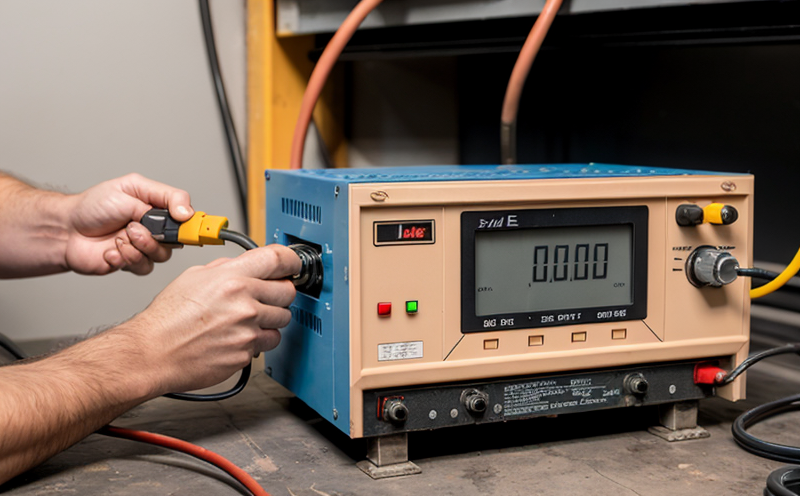JEDEC JESD22-B119 Die Flip-Chip Reliability Testing
The JEDEC JESD22-B119 test is a critical procedure for evaluating the reliability and functionality of flip-chip die in semiconductor manufacturing. This test method is designed to simulate real-world conditions that may cause failure, thereby ensuring that the product meets all necessary quality standards.
Flip-chip technology involves a different approach compared to conventional leaded packages where the electrical contacts are on the bottom surface of the chip. In flip-chips, these connections are made directly onto the substrate's top surface. The JEDEC JESD22-B119 test is particularly relevant for devices like integrated circuits (ICs), microcontrollers, and other semiconductor components that use this packaging technology.
The testing protocol involves subjecting the die to high-temperature thermal cycling, which simulates the extreme conditions that the device may encounter during its lifecycle. This process helps identify any weaknesses or defects in the bond wires connecting the die to the substrate. The test is not only limited to mechanical stress but also assesses electrical performance under these harsh conditions.
During this testing procedure, engineers closely monitor various parameters such as current consumption, voltage drop across connections, and overall stability of the circuit. These measurements provide valuable insights into how well the product will perform in actual use scenarios. By adhering strictly to JESD22-B119 standards, manufacturers can ensure that their products are reliable and capable of withstanding various environmental stresses.
One key aspect of this testing is its ability to detect micro-cracks or fractures within the die structure due to thermal expansion mismatches between different materials used in manufacturing. Such defects could lead to short circuits or open circuits later on, making early detection crucial for quality assurance purposes. Additionally, the test helps verify that there are no significant changes in electrical characteristics over time, ensuring consistent performance throughout the product lifecycle.
Another important feature of this test is its role in validating the robustness of protective coatings applied during production processes. These layers serve as barriers against moisture intrusion and other contaminants which can degrade the integrity of internal circuits if not properly protected. By performing thorough evaluations according to JESD22-B119 guidelines, companies can guarantee that their products remain safe and operational even in adverse environments.
In summary, JEDEC JESD22-B119 Die Flip-Chip Reliability Testing plays an essential role in ensuring the durability and reliability of flip-chip die used in modern semiconductor devices. Through rigorous assessment methods aligned with industry best practices, this testing ensures that each component meets stringent quality requirements before reaching market shelves.
- Identifies potential issues early on
- Ensures compliance with international standards
- Maintains high levels of performance and longevity
- Enhances overall product reliability
Why Choose This Test
- Identifies potential issues early on, ensuring compliance with international standards and maintaining high levels of performance and longevity.
- Maintains the highest level of product reliability by detecting micro-cracks or fractures within the die structure due to thermal expansion mismatches between different materials used in manufacturing.
Customer Impact and Satisfaction
The JEDEC JESD22-B119 Die Flip-Chip Reliability Testing significantly enhances customer satisfaction by providing reassurance that the products purchased are reliable, durable, and meet all necessary quality standards. By adhering strictly to these testing protocols, manufacturers can ensure their offerings withstand various environmental stresses and perform consistently over time.
Customers appreciate knowing that they are getting a product that has undergone rigorous evaluation processes before reaching market shelves. This level of assurance fosters trust between buyers and sellers while ensuring long-term satisfaction with purchased items.
Use Cases and Application Examples
This testing is particularly useful for ICs, microcontrollers, and other semiconductor components that use flip-chip technology. It ensures reliable performance under extreme conditions such as temperature fluctuations or mechanical stress.
An example of an application where this test would be beneficial includes automotive electronics, where reliability in harsh environments can mean the difference between safety and failure. Similarly, it is essential for medical devices requiring consistent operation despite variations in environmental factors.





